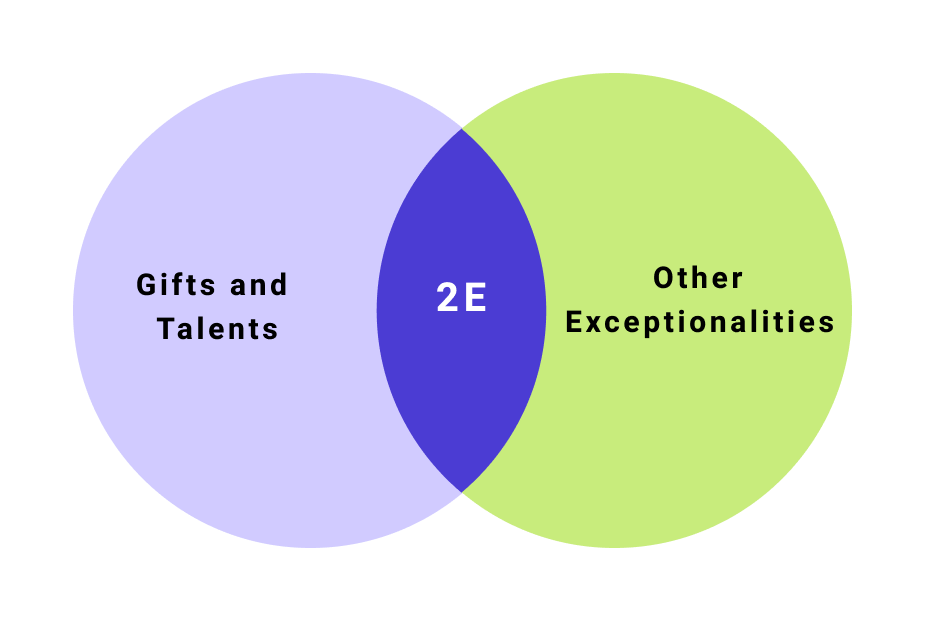Twice Exceptional
All gifted & talented children have their own pattern of: Advanced Verbal, Reasoning, Spatial AND/Or Numerical Abilities
Welcome to the MCGT 2e Resources page!
If you’re raising a twice-exceptional (2e) child in Minnesota, YOU ARE NOT ALONE.
Twice exceptional (2e) individuals evidence exceptional ability and disability, which results in a unique set of circumstances. Their exceptional ability may dominate, hiding their disability; their disability may dominate, hiding their exceptional ability; each may mask the other so that neither is recognized nor addressed. Additionally, twice-exceptional individuals come from- and are impacted- by socio-economic, individual, and cultural diversity. (CEC, 2020)
Each twice-exceptional (2e) person has a unique profile of strengths or talents (see markers of giftedness) and one or more other exceptionalities. No two 2e or multi-exceptional people are the same.
This graphic shows some of the possible strengths and challenges of giftedness and other exceptionalities.

Gifts and Talents
Other Exceptionalities
Raising a 2e child can be confusing. 2e children are often misunderstood. 2e kids may have qualities or abilities common among gifted youth – curiosity, creativity, strong memory, keen insight, advanced abstract reasoning, strong vocabulary, a nuanced sense of humor, early reading development, and passionate interests; AND their other exceptionalities can make it difficult for them to complete daily tasks, connect with neurotypical peers, cope with transitions, manage their emotions, or think flexibly. 2e youth are more likely to experience sensory sensitivities, fine motor difficulties, medical concerns, high levels of anxiety, and bullying and social isolation. They are often misunderstood by others and a traditional school may not fit their needs and advocacy (link to Advocating for Your Student) may be necessary.
ADHD, autism, and learning disabilities look different in gifted kids.
- Gifted kids on the autism spectrum are often verbally advanced and learn to read early.
- Gifted kids with attention difficulties can often focus/hyperfocus for long periods of time on tasks they find interesting – which could be anything from video games to puzzles to advanced math!
- Gifted kids with learning differences may excel in some academic areas and perform on grade-level (or below) in their areas of asynchronicity.
If you suspect your child is 2e, consider a comprehensive assessment. Many 2e kids are masked in school due to their intellectual ability to power through their learning differences. A thorough psychological assessment can help determine strengths and weaknesses and what types of education and support would be most appropriate, so you can encourage and nurture your child’s talents while supporting their differences. If you’re looking for professional support, you may want to start with the MCGT Professionals Directory.
Twice-exceptional kids often feel misunderstood by others, so kudos to you for researching 2E to learn more about your child and how to support them! Parents have often noticed that their child is advanced or struggle with differences compared to peers without formal testing. We hope the resources below are helpful on your journey.
